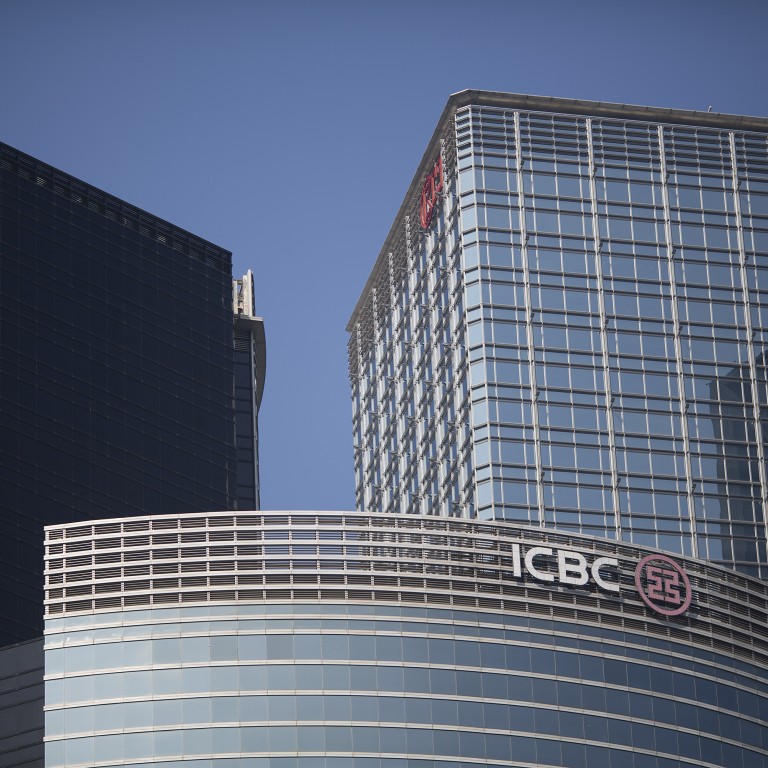
Hybrid bond lures foreign funds
ICBC attracts keen interest in US$500 million offering, which allows regulators to force holders to take loss on note if issuer runs into trouble
Foreign investors could be a major source of funds for recapitalising mainland banks, with a new type of bond sold offshore by Industrial and Commercial Bank of China potentially the catalyst for a wave of refinancing.
ICBC (Asia), the Hong Kong subsidiary of the world's biggest bank by market capitalisation, closed Asia's first Basel III compliant bond priced in US dollars on Wednesday, raising US$500 million.
The 10-year bond is callable in the fifth year. The deal qualifies as tier-2 capital, which are funds ICBC can present to regulators to show it has enough capital to protect against failure.
When you are introducing a new structure, you prefer … no credit concerns
To count as Basel III compliant, the bond included a write-down feature. The clause allows the Hong Kong Monetary Authority or the China Banking Regulatory Commission to force investors to take a loss on the bond if they believe ICBC - either the parent firm or the subsidiary - to be in trouble.
Tianjin Binhai Rural Commercial Bank used a near-identical structure in July for a 1.5 billion yuan (HK$1.9 billion) bond, the first of its kind on the mainland market.
ICBC's deal is the first to gauge global investors' willingness to accept the risk that two regulators could make a somewhat subjective call that an issuer is non-viable, however this may be defined, thus inflicting large losses on bond holders.
ICBC is a good test issuer for such an instrument.
The parent company ranks first among all banks for operational income, and has the largest tier-1 capital at US$160.6 billion, making the non-viability clause little more than a curiosity.
"When you are introducing a new structure, you always prefer a name with no credit concerns. The hurdle then is not on understanding the credit, it's just getting through the details of the structure," said Alan Roch, the head of Asia- Pacific bond syndicate at RBS, a book-runner on the transaction.
Banks took the unusual step of marketing the deal over two days. The deal structure was introduced to investors on Wednesday and institutions were sounded out on pricing. Formal orders were taken the next day, drawing US$2.3 billion from 150 institutions.
The Basel III rules mean that mainland banks need to start discounting the impact of their old-style (Basel II) capital by 10 per cent each year. The top five banks alone will have to replace about 700 billion yuan in tier-2 capital and 500 billion yuan in tier-1 to satisfy the minimum requirements.
Pricing on the ICBC deal was at 315 basis points above five-year US treasuries for an initial yield of 4.522 per cent. Private banks were keen on the offer, taking 45 per cent of the transaction. The rest went to asset managers and insurance firms.
